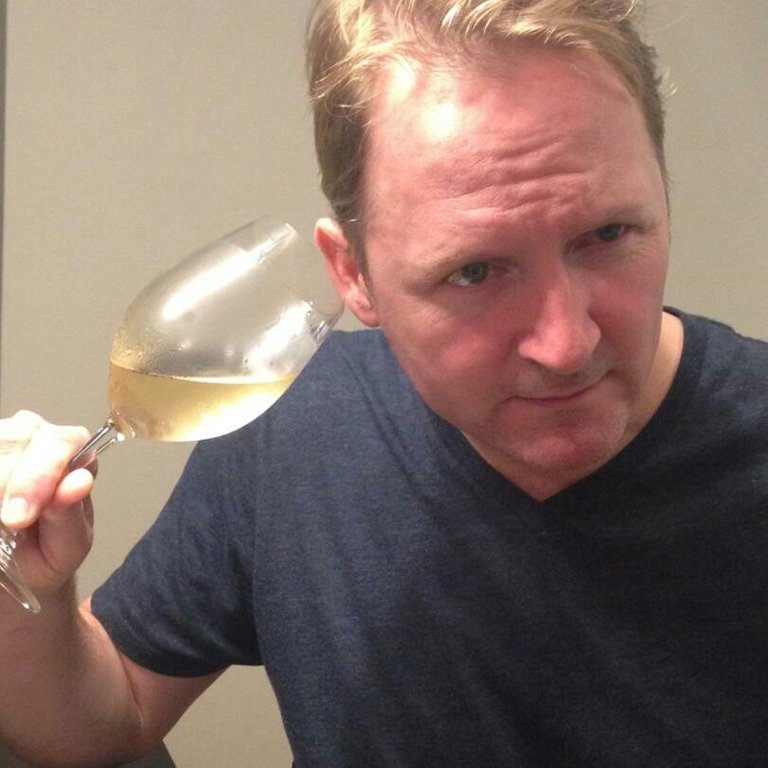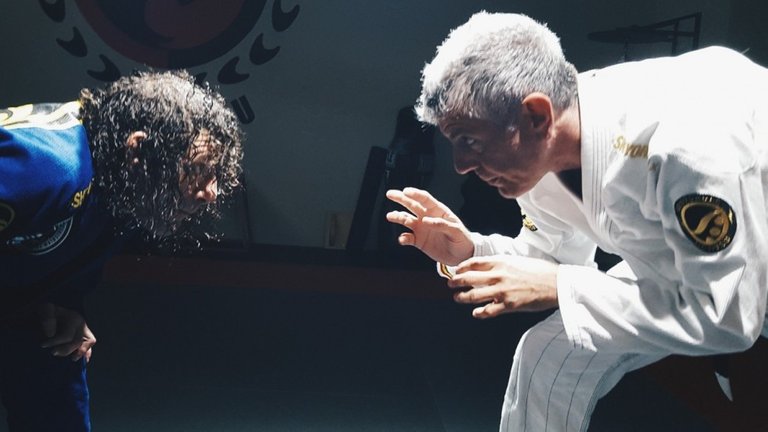“A dry, yet feral, aloe vera climb towards a multi-dimensional peak of salty tide intensification that wistfully finishes with a sharp note of Provencal herbs.”

Before moving on to where the real money was, slinging cocktails and frosty mugs of Homer juice to society’s socially acceptable addicts, I used to work at a Winery. I consider myself to be down to earth, “a Labatt 50 and a burger please” kinda dude. I had two mini-training sessions with a sommelier, and actually found that discovering the difference between “Old World” and “New World” wines and learning how different regions and climates affected the final product was quite interesting, and the pairing portion was to be of particular use in my future endeavours to curry favor with a certain sultry red, know what I mean? So I enthusiastically studied up and memorized tasting notes and pairings for the particular wines that we offered.
My positive attitude was quickly curtailed by the pretentious clientele spewing verbal diarrhea as if it were cultivated sophistication. I doubt there’s any need to flesh out an argument as to why wine snobs are an annoying lot, they share the same capacity to induce cringe as nails on a chalkboard, valley girl talk, and your friend that sees the downside to everything.
But what if wine snobbish ideology could affect the social structure? Could influence politics and the economy?
Around the same time I was offering up tasters, I, fortunately, happened across an episode of Penn and Teller’s On Bullshit. Magicians are masters at reverse engineering, which is why the art was so conducive to debunking witchcraft and claims of the paranormal in the past. On Bullshit carried on this legacy of debunking frauds, but in this particular episode, they took aim at the self-deception of wine and food connoisseurs dining at a high-end restaurant. Penn and Teller crafted an entire meal with goods purchased from the gas station around the corner for under ten bucks. The kicker is that these experts ate it up, literally and figuratively, profusely complementing the culinary experience. At the time I thought that the moral of the story was the importance of aesthetics in determining our experience, but recently I’ve arrived at a different take.
In one of the most recent episodes of Who Is America, Sacha Baron Cohen posing as Ricky Sherman, an ex-con who found his culinary love within the confines of a maximum security prison, serves the famous food critic Bill Jilla an “anally aged Kobe beef” in “a strawberry flavored condom to give it that kind of summery feel,” and an ethically sourced “filet of Vegetarian fed Chinese Dissident and Cauliflower pure.” Jilla flattered Sherman with praise after cutting into the latex wrapping and described the Chinese dissident as “melting on my pallet, I don’t even need to chew it!” before thanking the dissident’s family for making the main course possible.
Many criticise Cohen by saying that these people are merely going along with the joke, that they are, in effect, humouring Cohen, but I believe this is somewhat Cohen’s point. Even if actions don’t run parallel to an alternative internal belief set, these actions still have dire consequences “I don’t actually believe in murder, but…” Both Jason Spencer, the Georgia Congressman who frog jumped backward to assault imaginary homophobic terrorists with his bare ass and yelled the most charged contemporary racial slur at the top of his lungs, and Bill Jilla, the most pretentious cannibal since Lecter reminisced on pairing a Chianti with fava beans, have effectively had their careers ruined. Jason Spencer has resigned, and Bill Jilla has completely deleted himself from the internet. Being duped by Cohen is, for a career, apparently more fatal than an Eminem diss track.
Our current world has been on a fast trajectory towards lifestyles that are performative, within not just social media, but the entire economy. With technology usurping a lot of the mindless cog in a machine type vocations more of us find ourselves in jobs where the requirements are not simply task-based, but performance-based, and that performance is predicated upon adhering to certain ideals, attitudes, or “corporate culture”. Immaterial, affective, or emotional labour, is now ubiquitous in all industries. Frederic Lordon coined the term colinearization to characterize the demand for us to not only appear to have the same attitudes, beliefs, and ideologies of our employers but to actually internalize them. The entire hiring process is a vetting to ensure those that are employed have desires colinear to the goals of the enterprise.
Before the advent of social media, the demand for colinearity may have been more of a minor nuisance, when you came home and took off the tie you could drop the act and chill, but it has evolved into something more dangerous, something totalitarian. You can get fired if someone tags you in the wrong picture on Facebook, associate with the wrong organizations, or tweet the wrong joke. While this is less of a problem for someone who works at the Gap, I’ve had many friends who worked for government bodies that either kept their social media accounts incredibly small and private, to only include immediate family and a small circle of friends, or deleted their accounts altogether.
One of the consequences of the totalitarian demand for colinearity becomes obvious when the political spectrum is as divided and extreme as we find today in the United States. In fact, the demand for colinearity re-enforces and perpetuates this divide, moderation may be viewed as a sign of a belief set that is incompatible with your party, or employer, prompting heavy-handed responses, which, in turn, cause an even more heavy-handed backlash.
Who is America is often described as satire, but that isn’t the case, although there is a strong resemblance to satire, and Cohen’s characters are most certainly satirical, the fact that these are not actors, but volunteers under the illusion that they are participating in an actual interview, or television segment, disqualifies the resultant product as being satire. It’s closer in spirit to a thought experiment, given an environment of X how will Y react? As ridiculous as it may seem Cohen gives us a glimpse into possible worlds. As close as these segments are to a Saturday Night Live or Mad TV sketch, these are real government officials, industry experts, and icons. Reality has in some sense become satirical in and of itself.
It seems to me that a reinvigoration of the philosophical discussion regarding authenticity is in order. Setting aside our personal ideals to adhere to an external authority's demand is a slippery slope, its similar to drug addiction in that undermining an ideal, of say being healthy, leads to the weakening of the willpower required to maintain that ideal in the first place, and with an attenuated will we’re more likely to undermine that ideal in the future, until we’ve finally arrived at a position where life is dictated more by the drug than anything else.
In an interview with Vanity Fair concerning another of his notorious characters, Cohen said, "I'm showing how separate these people are from the society they govern, and that's a very worrying thing, that they believe that an Ali G could exist." What’s even more worrying to me is that Bill Jilla and Jason Spencer do exist, and I think once again Cohen very convincingly points out that those in positions of influence are so very far removed from the manner in which the majority of citizens would conduct themselves.
I do believe that most people start out with good intentions. You pick up a little wine knowledge and are able to impress at a party, you become known as the expert in the group which reinforces your behaviour, pretty soon you’re spouting off about a Sauvignon Blanc that tastes like “cat piss”, but like, in a good way. Similarly, a right wing remark concerning the job market gets congratulated, and before you know it you’re running for office and pointing towards immigrants as the cause of all our problems. In both cases, there is something inauthentic at play, a Joe Roganesque principle of “people getting caught up in the momentum of their own lives,” resulting in their actions being so far removed from their initial belief set that they hardly recognize themselves, or have any control over their own behaviour.
Inauthenticity is like most of our pernicious foibles in the way that it is self-reinforcing, and while it’s not possible to arrive at a rigorous notion of authenticity, the concept will always be slightly idiosyncratic, like any of our social categories, I would still love to see someone as down to earth as the late great Anthony Bourdain, who was known to scarf down street meat with the same exuberance as he did foie gras, bitch slap any food critic who would seriously entertain the idea of cannibalism. Authenticity is always going to be in the same category as “likable” or “dependable” i.e, not subject to truth conditions, but we’ll know it when we see it, and I hope, moving forward, to see a lot more of it.


Nice piece. I had to quit my job because I didn't like who I was becoming. I've spent the last year or so asking myself tough questions to regain my values/identity and subsequently be able to act authentically. I'm very happy right now, especially with the progress made, but socially withdrawn. Mainstream just-about-anything seems phony other than the few examples you mentioned, so it's hard to relate to people or pretend to care. I suppose it's up to those who recognize the value in their truth to act accordingly, though I did lose many friends, I gained a couple that are very worth having. I think acting authentically is linked to courage, which the younger generations seem to have. They focus on individualism and empathy which define their social moral grounds. I'm hoping the next revolution we have will be one of ethics, built by those courageous enough to be themselves and do the right thing.
Yes, I definitely agree that authenticity requires courage. I to, being a Spinozist, hope for a revolution focused on ethics, rather than a morality. I believe, with my man Nietzsche, that morality has become untenable, at least on a public scale. Ethics has the advantage of not being about transcendent essences like "good" or "bad" but about creating a future that agrees with us, more in line with a utilitarianism.
I do believe platforms such as steemit are a great step forward. Decentralization is a path towards diffusing power amongst the masses.
Glad to hear you're happy! I too recently quit my job for much the same reasons. Yes you lose friends, but it matters more that the friends that you do have are similarly minded, as you hinted at.
Thanks for the comment!
No problem, what did you used to do, if you don't mind me asking.
I was a bartender, the lifestyle got to be a bit overwhelming. How about yourself? I just skimmed your blog, we have some similar interests, Anthony Bourdain and asses to name a few haha
Was a process/manufacturing engineer in med device, ended up burning myself out. Definitely an ass man :P I'm still finding my voice on steem, so for now I just write or share whatever comes to mind or what's going on in my life. I thought it was weird that people were that surprised Bourdain killed himself, as much character as he had, he was pretty fucked up in the head, many high level chefs are. You need a certain drive that transcends your own practical humanity. It pushes you to uncomfortable places in your mind. Hunter S. Thompson was another that had my fear and respect, but also kinda made sense that he had enough or chose not to participate any longer.
Well Hunter S. Thompson was just on another level. Here's a clip of Rogan detailing his daily routine. I'm super surprised he lived as long as he did!
Bourdain had turned his life around, famously by quitting drugs around the Kitchen Confidential years, but recently Rogan had gotten him addicted to BJJ. He got ripped! He had a six pack and even was able to go off the statins he had been taking. I don't usually see people with that kind of dedication to a healthy discipline commit suicide, so I was a bit surprised too.
When I watch No Reservations, and Parts Unkown, the show is so intimate I start to think I know the person, but I guess you never truly know what's going on with someone when you're getting a filtered view.
But Rogan was surprised by it, and he knew him pretty well...
Anyways, I'm sure with your engineering skills you'll do just fine with whatever future endeavor you choose!
Oh man, I've seen that clip a few times, it never gets old. But it speaks to who he was, I definitely could NOT handle that type of toxic load though he knew he could and that it was what he needed to do. There are various tribes around the world that use different drugs, including alcohol, to purposefully transcend consciousness to arrive at some truth. This guy knew his purpose was to push his mind and his body as far as they would go to discover something. I wonder if there was ever a time he was sober past a certain point in his life.
I agree... Honesty is the first step on any task you want to do, anything you plan in your life shoulud be based on it. No matter if you don't succeed at the beginning...You'll do it sooner or later, but to mke concessions is not an option. I refused many times to do things that were against my values...and I'm stubborn enough to keep on doing it. By the way....I'm just a simple techer...
I hope you're not teaching spelling!! haha jk. :) Glad to hear we still have honest citizens cultivating our biggest resource!
Your post had been curated by the @buildawhale team and mentioned here:
https://steemit.com/curation/@buildawhale/buildawhale-curation-digest-09-21-18
Keep up the good work and original content, everyone appreciates it!
Thanks!
You got a 23.89% upvote from @postpromoter courtesy of @shteev0!
Want to promote your posts too? Check out the Steem Bot Tracker website for more info. If you would like to support the development of @postpromoter and the bot tracker please vote for @yabapmatt for witness!
Congratulations @shteev0! You have completed the following achievement on the Steem blockchain and have been rewarded with new badge(s) :
Click on the badge to view your Board of Honor.
If you no longer want to receive notifications, reply to this comment with the word
STOPCongratulations @shteev0! You have completed the following achievement on the Steem blockchain and have been rewarded with new badge(s) :
Click on the badge to view your Board of Honor.
If you no longer want to receive notifications, reply to this comment with the word
STOPCongratulations @shteev0! You received a personal award!
You can view your badges on your Steem Board and compare to others on the Steem Ranking
24.000+ followers resteem was made ( @hakanlama , @tenorbalonzo , @asagikulak , @efsun2007 )
I think morality is trending more than ever; appeals to higher powers that ground different ideas of right and wrong are everywhere atm. An ethics is a corrective in the way that it recognizes no authority other than community consensus.
I'll remove my upvote. I decided to follow what I saw was standard practice, but since it is somewhat of a touchy subject I'll follow the most unobjectionable path moving forward.
Good point concerning being authentically devoid of virtue, there's definitely a hint of Jung that could be unearthed there. I think the concept still retains importance though. Since I understand the mind not as a smooth homogenous soul, but a partitioned community of competing desires, the search for authenticity is more like creating agreement amongst one's selves, with a sense of alienation lighting the way.
Thanks for the comment.